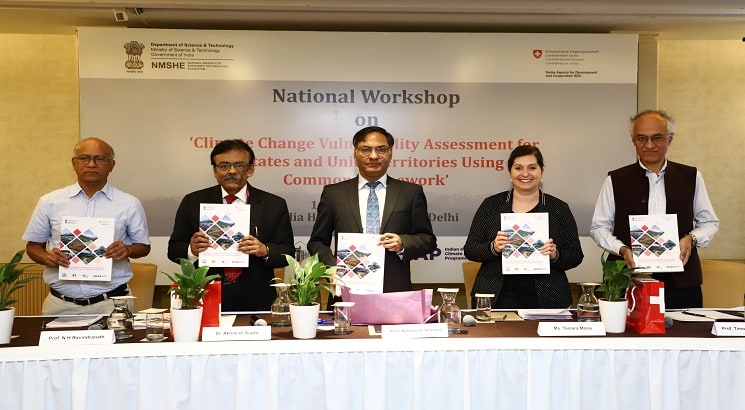IIT Guwahati, IIT Mandi and IISc Bengaluru to jointly develop Climate Change Vulnerability Map for 12 Indian Himalayan States
Abhay Anand | March 15, 2019 | 03:23 PM IST | 2 mins read

NEW DELHI, MARCH 15: Indian Institute of Technology Guwahati, Indian Institute of Technology Mandi and Indian Institute of Science Bengaluru collaborate in a pan-Indian, multi-institutional initiative to develop a ‘Climate Change Vulnerability Assessment for the Indian Himalayan Region Using a Common Framework.’
The assessment exercise is unique because for the first time all the 12 Indian Himalayan Region (IHR) States have used a common framework resulting in the production of comparable state level and within state, district level vulnerability maps. Such comparable vulnerability assessments are useful for the government officials, implementers, decision makers, funding agencies and development experts, to have a common understanding on vulnerability, enabling them to assess which state in IHR is more vulnerable, what has made them vulnerable and how they might address these vulnerabilities.
The Principle Investigators of the project Dr. Anamika Barua (Associate Professor, Department of Humanities and Social Sciences, IIT Guwahati), Dr. Shyamasree Dasgupta (Assistant Professor, School of Humanities and Social Sciences, IIT Mandi) and the Key Resource Person of the project Prof. N. H. Ravindranath, IISc Bengaluru mentioned, “Based on the common methodology, we came up with a state level vulnerability assessment for the IHR and organized training workshops for the state level officials to carry out district level assessments in all 12 IHR states. Such a coordinated approach and enhanced cooperation between states in the IHR and the departments within the states are assumed to improve resilience to climate change because several adaptation interventions will require coordinated efforts across administrative boundaries”.
The 12 states include Assam, Manipur, Meghalaya, Mizoram, Nagaland, Tripura, Arunachal Pradesh, Sikkim and the hilly districts of West Bengal in the eastern part and Himachal Pradesh, Uttarakhand, Jammu and Kashmir in the Western part of IHR.
Highlighting the impact of this project, Prof. Ashutosh Sharma, Secretary, Department of Science and Technology, Government of India, said, “The adaptation to Climate Change is a collaborative effort between appropriate use of technology, a vision that produces policies, a change at ground level and engaging the local communities. These vulnerability maps will play a crucial role in this effort.”
Follow us for the latest education news on colleges and universities, admission, courses, exams, research, education policies, study abroad and more..
To get in touch, write to us at news@careers360.com.